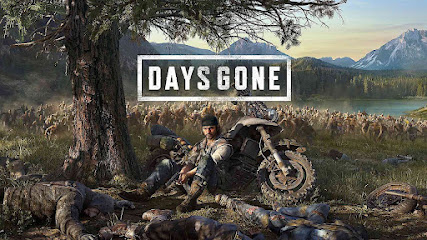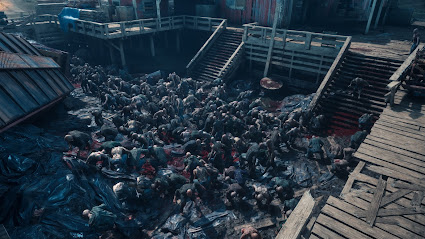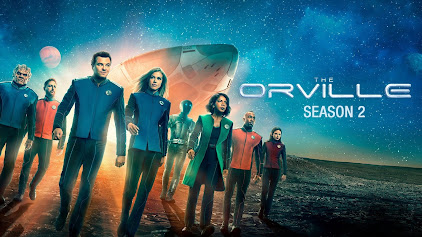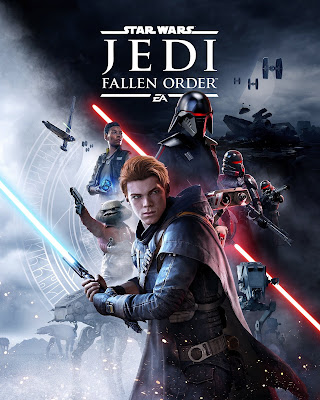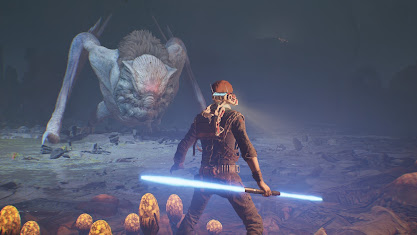Saturday, 12 March 2022
All Systems Red by Martha Wells
Wednesday, 9 March 2022
STAR TREK and STAR WARS unveil trailers for their new shows
The Star Trek and Star Wars franchises have released trailers for their new shows on the same day.
First up is Star Trek: Strange New Worlds. A spin-off of Star Trek: Discovery, Strange New Worlds reunites Captain Christopher Pike (Anson Mount), Lt. Commander Spock (Ethan Peck) and Number One (Rebecca Romjin) on the Constitution-class USS Enterprise, the same ship that will one day be commanded by Jim Kirk. Also on the ship are Cadet Nyota Uhura (Celia Rose Gooding) and Nurse Christine Chapel (Jess Bush). New characters include Dr. M'Benga (Babs Olusanmokun), Hemmer (Bruce Horak), La'an Noonien-Singh (Christina Chong) and Erica Ortegas (Melissa Navia).
The show is set after Discovery's second season (which was set in 2257) and before Star Trek: The Original Series (which began in 2265). It will be based primarily around episodic adventures in contrast to the denser story arcs of Picard and Discovery. The ten-episode season begins on 5 May and has already been renewed for a second season.
Second up is Star Wars: Obi-Wan Kenobi. Set ten years after the events of Revenge of the Sith (and nine before the events of A New Hope), the trailer sees Kenobi keeping a watchful, if distant, eye on young Luke on the planet Tatooine. However, Imperial Inquisitors are causing problems out in the galaxy, and when their trail gets too close to Tatooine for comfort, Kenobi decides to deal with the threat. The six-episode mini-series launches on Disney+ on 25 May.
Tuesday, 8 March 2022
Production concludes on STAR TREK: PICARD
Ernie Hudson joins QUANTUM LEAP sequel pilot
Sunday, 6 March 2022
Days Gone
Wednesday, 2 March 2022
The Orville: Season 2
Star Wars Jedi: Fallen Order
RIP Priscilla Tolkien
Tuesday, 1 March 2022
Disney+ to host all six Netflix Marvel shows and AGENTS OF SHIELD from mid-March
Disney+ will add all six of the Marvel Netflix TV shows and ABC's Agents of SHIELD to their roster on 16 March.
The package includes three seasons apiece of Daredevil and Jessica Jones, two seasons apiece of Luke Cage, Iron Fist and The Punisher, the team-up mini-series The Defenders and all seven seasons of ABC's Agents of SHIELD. That's 20 seasons of television, totalling 297 episodes, that will be making the jump to the service.
The fate of the Netflix shows was initially unclear after Netflix confirmed they were leaving the service a few months ago. However, the appearance of the Netflix version of Wilson Fisk, aka Kingpin, played by Vincent D'Onofrio in Hawkeye and the appearance of Matt Murdock/Daredevil in Spider-Man: No Way Home, played by Charlie Cox, suggested that those shows were going to be brought into the Marvel Cinematic Universe canon.
The fate of the two well-regarded ABC series Agents of SHIELD and Agent Carter was a lot more ambiguous. Agents of SHIELD had gone to some lengths to tie itself in with the MCU, featuring guest appearances by Samuel L. Jackson as Nick Fury and Jamie Alexander as Sif, reprising their roles from the film series, alongside lead actor Phil Coulson, with Clark Gregg reprising his role from the films, and Hayley Atwell as Agent Peggy Carter.
Avengers: Endgame saw a tie-in with Agent Carter, with James D'Arcy reprising his role as Jarvis in that movie. However, the final seasons of Agents of SHIELD saw a splintering away from the events of the films, reportedly due to the film team not wanting to give the TV crews any secret information about the movies for it fear of leaking.
Agent Carter is not, so far, joining Disney+ in the United States, but it is already available on the service in other countries, including the UK.
To accommodate the new shows, which feature swearing, violence and more adult content such as sex and drugs, Disney+ will be enhancing its parental controls in the US. In the UK and some other countries, Disney+ operates an adult-oriented subchannel called Star TV, which is likely to host the shows outside the US.



